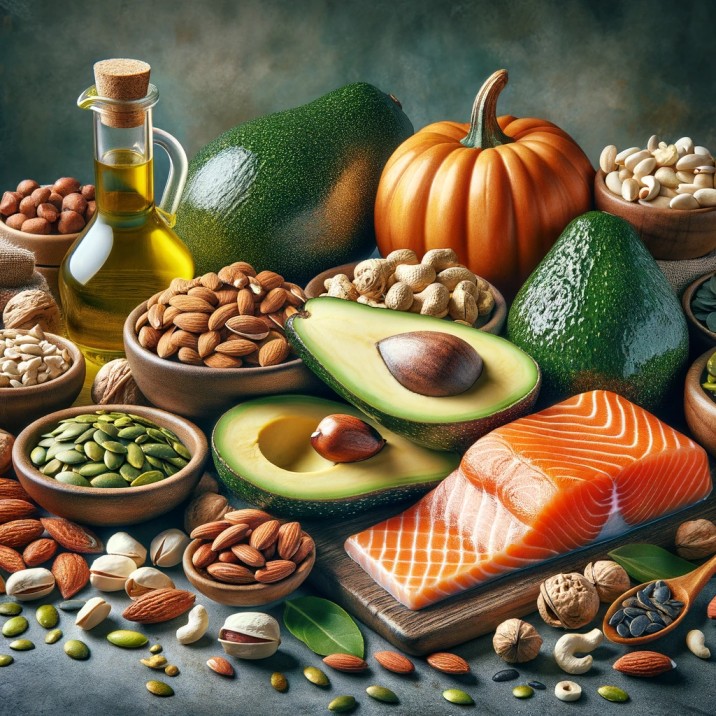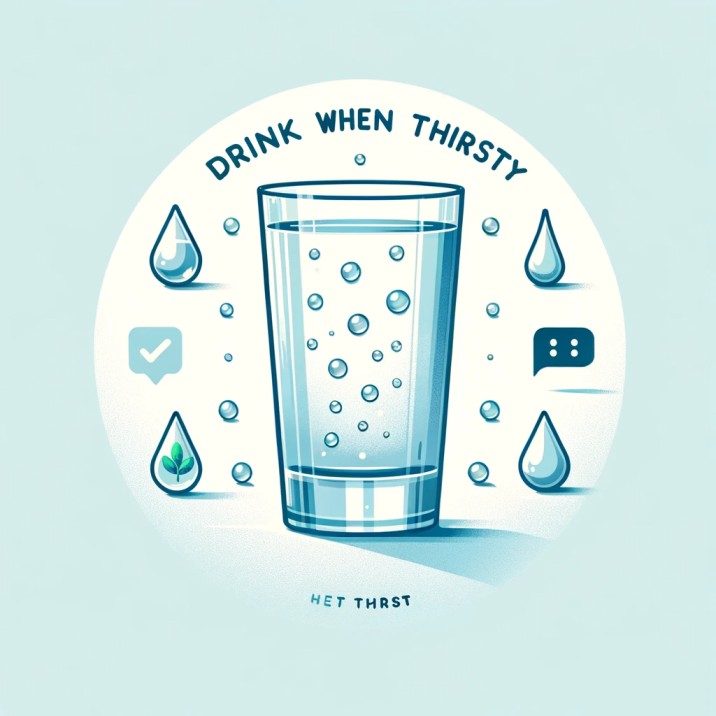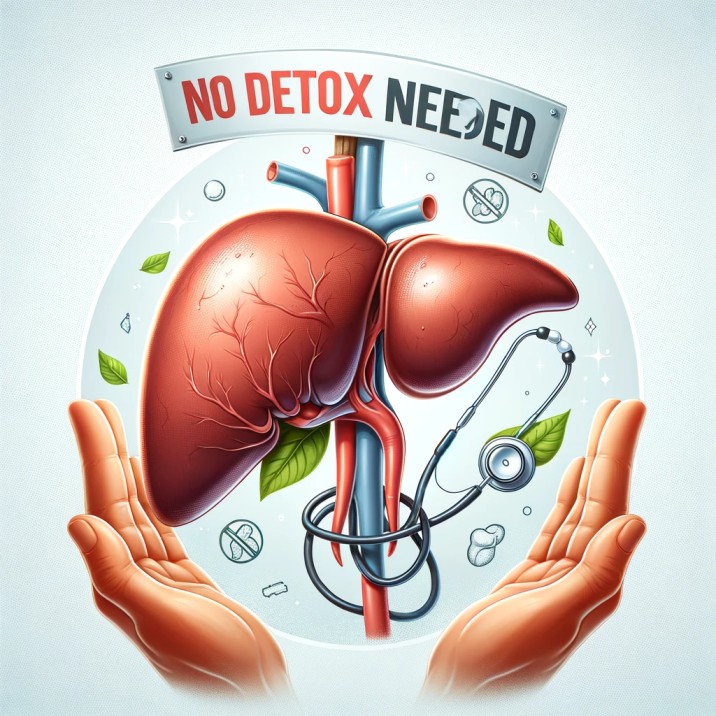Myth 1: Carbs Are Bad for You
The belief that "carbs are bad for you" has become a popular notion in the dieting world, but this oversimplification ignores the complexity and necessity of carbohydrates in our diet. Carbohydrates are the body's primary energy source, essential for both brain function and physical activity. Eliminating or severely restricting them can lead to a lack of energy, decreased mental function, and long-term health consequences.
Firstly, it's important to understand that not all carbs are created equal. Carbohydrates are categorized into simple and complex types. Simple carbs, found in products like sugar, soda, and white bread, are quickly digested and lead to rapid spikes in blood sugar. On the other hand, complex carbs, such as those in whole grains, legumes, fruits, and vegetables, are digested slower and provide a steady release of energy. They are also high in dietary fiber, which aids in digestion, improves cholesterol levels, and helps control blood sugar levels.
Another critical aspect is the role of carbs in a balanced diet. Carbs are more than just a source of energy; they contain essential nutrients such as vitamins, minerals, and antioxidants. For instance, whole grains are a significant source of B vitamins, which are vital for energy metabolism. Fruits and vegetables are high in vitamins, minerals, and phytochemicals that protect against chronic diseases.
Furthermore, studies have shown that a moderate intake of high-quality carbs is associated with a lower risk of heart disease, type 2 diabetes, and some types of cancers. Dietary patterns that include an appropriate amount of healthy carbs, such as the Mediterranean diet, have been linked with longevity and reduced disease risk.
It's also worth noting the importance of carbs in physical activity. Athletes and active individuals require carbohydrates to fuel their muscles and maintain energy levels. Low-carb diets can lead to reduced performance, muscle fatigue, and slower recovery.

Myth 2: Fat Makes You Fat
The longstanding belief that eating fat leads directly to gaining fat is one of the most persistent myths in nutrition. It stems from the basic idea that fats are more calorie-dense than carbohydrates or proteins, but this oversimplification overlooks the complexity of how our bodies process and use dietary fats.
Firstly, it's important to distinguish between different types of fats. Unsaturated fats, found in foods like avocados, nuts, seeds, and olive oil, are beneficial for heart health and can actually aid in weight management. These fats help in the absorption of vital nutrients, support cell growth, and are essential for brain health. In contrast, trans fats and certain saturated fats, often found in processed foods, can be harmful when consumed in excess and contribute to heart disease and weight gain.
Moderate and mindful consumption of healthy fats is crucial for a balanced diet. Fats play a vital role in satiety, the feeling of fullness after eating. They take longer to digest than carbohydrates, which can help control hunger and reduce overall calorie intake. Studies have shown that diets with moderate amounts of healthy fats can be more effective for weight loss compared to low-fat diets, likely because they are more satisfying and easier to stick to in the long term.
Moreover, fats are essential for the absorption of fat-soluble vitamins (A, D, E, and K), which are crucial for various bodily functions, including immune response, bone health, and blood clotting. A diet too low in fat could lead to deficiencies in these vitamins, affecting overall health.
It is also worth mentioning the role of fats in hormonal balance. Fats are essential for the production and regulation of hormones, including those that regulate metabolism and weight. An imbalance in these hormones, often caused by inadequate fat intake, can lead to weight gain and metabolic issues.

Myth 3: High-Protein Diets Are the Best for Weight Loss
The popularity of high-protein diets for weight loss has surged in recent years, with many people believing that increasing protein intake is the most effective strategy for shedding pounds. While protein is an essential macronutrient that plays a crucial role in muscle building, repair, and satiety, the notion that a high-protein diet is universally the best approach for weight loss oversimplifies the complexities of nutrition and individual metabolism.
Firstly, it's important to understand protein's role in the body. Protein contributes to the feeling of fullness, which can help with portion control and reduce overall calorie intake. It's also vital for preserving muscle mass, especially during weight loss, ensuring that the body burns fat instead of muscle for energy. This is particularly important for maintaining a healthy metabolism, as muscle tissue burns more calories than fat tissue.
However, the idea that more protein is always better for weight loss is misleading. Consuming protein far beyond the body’s needs does not necessarily translate into more significant weight loss. Excessive protein intake can lead to health issues, particularly if it results in a lack of balance with other essential nutrients. Diets overly high in protein can strain the kidneys, particularly in individuals with preexisting kidney conditions. It can also lead to a reduction in the intake of other essential nutrients found in fruits, vegetables, and whole grains.
Furthermore, not all protein sources are equally beneficial. Lean protein sources like chicken, fish, legumes, and tofu are healthier choices compared to red and processed meats, which can be high in unhealthy saturated fats and linked to other health issues.
Balance is key in any diet. A high-protein diet might be helpful for some individuals in the context of calorie control and muscle maintenance, especially when combined with strength training exercises. However, it's essential to approach weight loss with a balanced diet that includes an appropriate mix of proteins, carbohydrates, and fats. This approach not only supports weight loss but also ensures overall health and well-being.
Additionally, individual factors such as age, activity level, muscle mass, and overall health play significant roles in determining the optimal diet for weight loss. What works for one person might not work for another. Therefore, it's crucial to avoid a one-size-fits-all mentality and instead focus on a balanced, nutrient-rich diet tailored to individual needs and goals.

Myth 4: Dietary Supplements Can Replace a Balanced Diet
The myth that dietary supplements can replace a balanced diet is a misconception that can lead to significant nutritional imbalances and health issues. While supplements can play a role in addressing specific nutrient deficiencies or serve as a complement to diet, they are not a substitute for the diverse array of nutrients found in whole foods.
First and foremost, whole foods offer much more than just vitamins and minerals. They contain a variety of other beneficial compounds, such as antioxidants, phytochemicals, fiber, and essential fatty acids. These compounds work synergistically in the body, contributing to overall health in ways that cannot be replicated by supplements. For example, the fiber in whole fruits and vegetables not only aids digestion but also helps regulate blood sugar levels and cholesterol.
Furthermore, the bioavailability of nutrients from whole foods is generally higher than that from supplements. Bioavailability refers to the extent and rate at which the active ingredients of a nutrient are absorbed and available for use in the body. Nutrients from whole foods are often more easily absorbed because they are presented in a natural matrix and accompanied by other compounds that facilitate their assimilation.
While supplements can fill gaps in the diet, they can also pose risks if not used responsibly. Overconsumption of certain vitamins and minerals can lead to adverse health effects. For instance, excessive intake of fat-soluble vitamins like A, D, E, and K can lead to toxicity since they are stored in the body. The use of supplements should ideally be based on a healthcare professional's recommendation, particularly in the case of high-dose supplements.
It's also important to consider the regulatory environment surrounding dietary supplements. In many regions, supplements are not regulated as strictly as pharmaceuticals, which means their purity, strength, and composition can vary significantly between brands and batches.
Moreover, relying on supplements can lead to a false sense of security about one’s health. Individuals may feel that taking supplements gives them a license to eat poorly, neglecting the variety of diet that is crucial for health. This misunderstanding can lead to an unbalanced diet lacking in essential nutrients, which can have long-term health consequences.

Myth 5: Organic Food is Always Healthier
The perception that organic food is always healthier than conventionally grown food is a common misconception. While organic farming practices offer certain environmental benefits and can reduce consumers' exposure to pesticides and other chemicals, it does not automatically make these foods nutritionally superior.
Organic farming focuses on using natural substances and physical, mechanical, or biologically based farming methods to the fullest extent possible. One of the primary reasons people choose organic products is to avoid the synthetic pesticides and fertilizers used in conventional agriculture. While reducing exposure to these substances can be beneficial, especially for certain populations like pregnant women and children, it's important to note that conventionally grown foods often contain pesticide residues well within the limits deemed safe by regulatory bodies.
Nutritionally, several studies have found minimal differences between organic and conventional produce. The vitamin and mineral content in both farming methods is typically very similar, and any differences that do exist are not consistent enough to conclude that organic is always nutritionally superior. For example, while some studies have found higher levels of certain antioxidants in organic produce, the clinical relevance of these findings is still unclear.
It's also worth mentioning that organic food can be more expensive than conventional food, which can be a barrier for many people. A balanced diet that includes plenty of fruits, vegetables, whole grains, and lean proteins is beneficial for health, regardless of whether the foods are organically or conventionally grown.
Another aspect to consider is that the term "organic" doesn't necessarily mean a product is healthier overall. For instance, organic cookies, candies, and chips might still be high in sugar, salt, or unhealthy fats. The key to a healthy diet is not just about choosing organic, but also about making overall healthy food choices.
In terms of environmental impact, organic farming tends to be more favorable. It generally uses fewer pesticides and other chemicals, contributes less to water pollution, improves soil quality, and is often more sustainable in the long term. However, it's important to recognize that conventional farming methods are also improving in terms of sustainability and environmental impact.

Myth 6: You Should Drink 8 Glasses of Water a Day
The widely circulated recommendation to drink eight glasses of water a day lacks a scientific basis and oversimplifies hydration needs. Individual hydration requirements vary greatly depending on numerous factors, including age, gender, body weight, climate, physical activity level, and overall health.
The origin of this myth is somewhat unclear, but it may stem from a misunderstanding of nutrition recommendations from the mid-20th century. These recommendations included the intake of all fluids, not just water, and also considered the water content in food. However, over time, this nuance was lost, leading to the oversimplified "8x8 rule" (eight 8-ounce glasses of water per day).
It's important to understand that the body's hydration needs are met not just through drinking water but also through other beverages and food. Many foods, especially fruits and vegetables like watermelon, cucumbers, and oranges, have high water content and contribute significantly to our daily water intake.
Moreover, other beverages like tea, coffee, milk, and juice also count toward hydration. While caffeine was once thought to have diuretic effects that could lead to dehydration, recent research indicates that moderate caffeine consumption does not significantly affect hydration status.
Thirst is a reliable indicator of when the body needs more fluids. Additionally, urine color is a useful and practical way to monitor hydration. Pale, straw-colored urine typically indicates proper hydration, while dark yellow or amber-colored urine suggests a need for more fluids.
Certain conditions and situations require increased water intake. These include hot and humid weather, high physical activity levels, fever, diarrhea, vomiting, and increased sweating. Pregnant and breastfeeding women also have higher hydration needs.
It's also worth noting that while staying hydrated is essential, it is possible to drink too much water, though this is rare. Overhydration can lead to water intoxication or hyponatremia, where the balance of electrolytes in the body is disrupted.

Myth 7: Skipping Meals Helps You Lose Weight
The myth that skipping meals can aid in weight loss is a pervasive one, but it's a strategy that can backfire in both the short and long term. While it might seem logical that eating less would lead to weight loss, this approach overlooks how our bodies and metabolism respond to eating patterns.
Firstly, skipping meals can disrupt normal metabolic processes. When the body doesn't receive food for an extended period, it can go into a 'starvation mode', slowing down metabolism to conserve energy. This survival mechanism can result in the body becoming more efficient at storing fat, as it prepares for periods of food scarcity. When you do eat, your body may store more calories as fat, in anticipation of another missed meal.
Moreover, skipping meals often leads to increased hunger and cravings, making it more likely that you'll overeat at your next meal. This overeating can negate any caloric deficit created by the skipped meal and can often lead to consuming even more calories than if the meal hadn't been skipped.
This approach can also negatively impact blood sugar levels. Regular, balanced meals help maintain steady blood sugar levels, which in turn helps control hunger and fullness cues. Skipping meals, especially breakfast, has been associated with increased risk of type 2 diabetes and cardiovascular diseases, as it can lead to fluctuations in blood sugar levels and increased insulin resistance.
Furthermore, meal skipping can affect nutrient intake. Regular meals spread throughout the day ensure a steady supply of nutrients that the body needs to function optimally. Missing meals can lead to deficiencies in essential nutrients, affecting overall health and well-being.
It's also important to consider the psychological effects of skipping meals. This practice can lead to an unhealthy relationship with food, where eating becomes a source of stress or guilt. Such an approach can potentially lead to disordered eating patterns and negatively impact mental health.

Myth 8: "Detox" Diets Cleanse Your Body
The concept of "detox" diets for cleansing the body is a popular one, often touted in the wellness industry, but it lacks scientific backing and understanding of how the human body actually works. The belief that certain diets or products can purge the body of toxins is not only misleading but also overlooks the body's natural and efficient detoxification systems.
First and foremost, it's important to understand that the human body has its own highly effective detoxification system in the form of the liver, kidneys, lungs, lymphatic system, and skin. These organs work continuously to process and eliminate toxins. The liver neutralizes harmful substances which are then excreted by the kidneys. The lungs filter out particulates from the air, the lymphatic system removes waste from cells, and the skin expels toxins through sweat.
Most "detox" diets advocate for short-term fasting or a strict regimen of juices, teas, or supplements, claiming to cleanse the body of toxins. However, there is little scientific evidence to support the efficacy of these diets. In fact, they can be counterproductive as they often lead to nutrient deficiencies and can disrupt normal metabolic processes. Prolonged fasting or extreme dietary restrictions can weaken the body's ability to fight infections and maintain muscle mass.
Moreover, many detox diets are not sustainable in the long term and do not encourage healthy, balanced eating habits. The rapid weight loss some people experience is often due to loss of water and muscle mass, not actual fat loss. Once the diet ends, most people regain the weight, leading to a cycle of yo-yo dieting that can be harmful to long-term health.
Detox diets also often ignore the importance of lifestyle factors in detoxification. Regular physical activity, adequate hydration, a diet rich in fruits, vegetables, and whole grains, and avoiding excessive alcohol and smoking are all crucial for supporting the body's natural detox processes.

Myth 9: Avoid Egg Yolks to Lower Cholesterol
The myth that consuming egg yolks is bad for your cholesterol levels and, by extension, your heart health, has been a topic of debate for many years. This belief led to the popularization of egg white omelets and other yolk-free alternatives. However, recent studies and a better understanding of cholesterol metabolism have debunked this myth, revealing that the relationship between dietary cholesterol found in egg yolks and blood cholesterol levels is not as straightforward as once thought.
For decades, eggs were vilified due to their high cholesterol content, with the yolk alone containing about 185 mg of cholesterol. Since high levels of LDL cholesterol (often referred to as "bad" cholesterol) are linked to an increased risk of heart disease, it was assumed that foods high in cholesterol would raise blood cholesterol levels. However, numerous studies have shown that for most people, consuming dietary cholesterol has a relatively small impact on raising blood cholesterol levels.
The body regulates its internal production of cholesterol based on dietary intake. When dietary cholesterol intake decreases, the body may produce more cholesterol, and vice versa. For most individuals, consuming foods high in cholesterol results in the liver producing less cholesterol. This means that dietary sources of cholesterol, like egg yolks, have a minimal impact on overall cholesterol levels in the body.
Moreover, eggs are a nutrient-dense food, offering high-quality protein, essential fatty acids, and various vitamins and minerals, such as vitamin B12, riboflavin, and selenium. They also contain choline, an important nutrient for brain health, which is found predominantly in the yolk.
It's also important to consider the concept of 'good' HDL cholesterol. Some studies have suggested that eating eggs can increase levels of HDL cholesterol, which is beneficial and can help mitigate the risk of heart disease.
However, it's worth noting that individual responses to dietary cholesterol can vary. While most people’s serum cholesterol levels are relatively unaffected by eating eggs, a small percentage of people, often called "hyper-responders," may experience an increase in serum cholesterol when their dietary cholesterol intake rises.
 Image: Whole eggs alongside a nutritional information chart.
Image: Whole eggs alongside a nutritional information chart.
Myth 10: Gluten-Free Diets Are Healthier
The idea that gluten-free diets are inherently healthier for the general population is a widespread misconception. This belief has gained traction alongside the rise of gluten-free products in the market, often perceived as healthier alternatives. However, the health benefits of a gluten-free diet are specific to certain individuals and are not universally applicable.
Gluten is a protein found in wheat, barley, and rye. For people with celiac disease, an autoimmune disorder, consuming gluten triggers an immune response that damages the small intestine. For these individuals, a gluten-free diet is essential for their health and well-being. Similarly, some people have non-celiac gluten sensitivity, experiencing symptoms like bloating, gas, and diarrhea after consuming gluten.
However, for the majority of the population without these conditions, there's no scientific evidence to suggest that a gluten-free diet offers health benefits. In fact, unnecessarily cutting out gluten can lead to several nutritional drawbacks:
Nutrient Deficiencies: Whole grains, which contain gluten, are an important source of nutrients, including fiber, iron, and B vitamins. Eliminating these can lead to deficiencies unless carefully replaced with other nutrient-rich foods.
Reduced Fiber Intake: Gluten-containing whole grains are a major source of dietary fiber, which is important for digestive health. A gluten-free diet might result in a lower fiber intake, leading to digestive issues like constipation.
Increased Sugar and Fat Content: Some gluten-free products compensate for changes in texture and flavor by adding extra sugar and fat, which can lead to an unhealthier diet overall.
Cost and Accessibility: Gluten-free products are often more expensive and less available, making this diet less accessible for many people.
Moreover, the notion that a gluten-free diet is inherently weight-loss-friendly is misleading. Weight loss on such a diet usually results from cutting out high-calorie processed foods that contain gluten, rather than the absence of gluten itself.

This article has explored a range of dietary topics, highlighting the importance of understanding the differences between various types of foods and diets, and their impact on health and nutrition. We delved into the distinction between complex and simple carbohydrates, illustrating how each type affects the body differently and the importance of choosing the right kind for a balanced diet. The visual comparisons provided a clear understanding of the sources and types of these carbohydrates.
We also discussed high-protein diets, particularly their role in weight loss, and presented an array of high-protein foods that can be incorporated into such a diet. The focus was on the balance and quality of protein sources, emphasizing the importance of choosing nutrient-rich proteins.
The comparison of organic and non-organic fruits and vegetables highlighted the differences in farming practices and their potential impact on health and the environment. This section aimed to inform consumers, allowing them to make more informed choices based on their personal health goals and environmental concerns.
The article addressed the role of hydration, particularly the importance of listening to your body's natural thirst cues. It debunked common myths about detox diets, showcasing the body's innate ability to detoxify itself, and stressed the importance of supporting these natural processes through a balanced diet.
We examined the role of dietary supplements alongside whole foods, illustrating how supplements can complement a diet but not replace the rich nutritional value of whole foods. This section provided insights into achieving a balanced diet with a combination of both.
Additionally, the article touched upon the significance of including healthy fats in our diet, debunking the myth that all fats are bad. It emphasized the importance of differentiating between healthy and unhealthy fats for overall well-being.
The nutritional value of whole eggs was another key topic, demonstrating their rich nutrient profile and how they can be a valuable part of a balanced diet. We included a nutritional chart to offer a detailed view of the nutrients found in eggs.
Finally, we explored gluten-free diets versus regular diets, showing that both can be nutritionally balanced. This section aimed to provide clarity on the gluten-free lifestyle and how it can be healthfully maintained.








